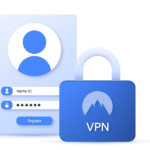The Federal Communications Commission (FCC) acts as the supervisory body regulating communications in the United States. In 2016, it established regulations regarding the privacy of broadband consumers, focusing on elevating consumers’ rights to choose, be informed, and secure their personal information. These regulations enable consumers to manage how their data is used and shared by broadband service providers.
The FCC privacy rules limit how broadband providers can use and share customers’ personal information. The rules require broadband providers to obtain consent from customers before using or sharing sensitive information, such as browsing history, app usage, and financial information. The rules also require broadband providers to take reasonable measures to protect customers’ personal information from unauthorized access and disclosure.
Table of Contents
Understanding FCC Internet Privacy Rules
As someone who uses the internet, it’s important to understand the FCC’s internet privacy rules. These rules were put in place to protect your personal information when you use broadband services. In this section, I’ll explain what these rules are and how they affect you.
What are FCC Internet Privacy Rules?
The FCC Internet privacy rules are a set of regulations that require broadband service providers to protect the privacy of their customers’ personal information. This includes information such as your browsing history, app usage, and location data. Providers must get your permission before using or sharing this information, and they must take steps to protect it from unauthorized access.
Why were these rules put in place?
These rules were put in place to give consumers more control over their personal information. In the past, broadband providers were able to collect and use this information without your permission. The FCC recognized that this was a problem, and decided to take action to protect consumers.
What does the Privacy Act of 1974 have to do with this?
The Privacy Act of 1974 is a federal law that governs the collection, use, and dissemination of personal information by federal agencies. While the FCC is not a federal agency, it is subject to the Privacy Act because it collects and maintains personal information about individuals in the course of its operations. This means that the FCC must comply with the Privacy Act when it collects and uses your personal information.
How do these rules affect me?
These rules give you more control over your personal information. You have the right to know what information your broadband provider is collecting about you, and you have the right to say no to the use or sharing of that information. Providers must also take steps to protect your information from unauthorized access. If you have concerns about your privacy, you should contact your broadband provider to learn more about their privacy policies and practices.

The Role of Internet Service Providers
As an internet user, you might not be aware of the role that Internet Service Providers (ISPs) play when it comes to your personal data. ISPs are the companies that provide you with internet access, and they have access to a lot of information about your online activity. In this section, I will discuss the role of ISPs in relation to internet privacy.
ISP and Personal Data
ISPs have access to a lot of personal data about their customers, including browsing history, search queries, and location data. This data can be used to create detailed profiles of internet users, which can then be sold to advertisers or used for other purposes.
To protect internet users’ privacy, the Federal Communications Commission (FCC) has adopted broadband consumer privacy rules that empower consumers to decide how data are used and shared by broadband providers. These rules give consumers increased choice, transparency, and security for their personal data.
Broadband Providers and Privacy
Broadband providers are required to follow certain rules when it comes to protecting their customers’ privacy. For example, they must obtain opt-in consent from customers before using or sharing sensitive information, such as financial information or health information. They must also provide customers with clear and concise notices about their privacy practices and give customers the ability to opt-out of certain types of data sharing.
However, opponents of the FCC’s broadband privacy rules have argued that broadband providers should be subject to the same regime as other internet companies, such as Google and Facebook. They have also argued that the FCC lacks authority to protect broadband customers’ privacy and that broadband providers should be free to use and share their customers’ data, particularly browsing history.
Collection and Use of Information
As per the FCC’s internet privacy rules, broadband providers must notify their customers about the collection, use, and sharing of their personal information. In this section, I will discuss how the FCC rules regulate the collection and use of customer information by broadband providers.
Tracking and Browsing History
Broadband providers are allowed to collect and use customer information, including web browsing history and app usage history, to deliver and improve their services. However, they must obtain customer consent before sharing this information with third parties. Additionally, broadband providers must provide customers with the option to opt out of the collection and sharing of their information.
Sensitive Information and Consent
Broadband providers must obtain explicit customer consent before collecting and sharing sensitive personal information, including financial information, social security numbers, and the content of communications. Customers must also be given the option to opt out of the collection and sharing of their sensitive information.
Role of Tech Giants and Advertisers
As internet companies and advertisers collect and use our personal data, the FCC’s internet privacy rules aim to give consumers more control over how their data is used. Tech giants like Google and Facebook have played a significant role in shaping the internet privacy landscape.
Google and Privacy
Google is one of the largest internet companies in the world and has faced scrutiny over its privacy practices. The company collects vast amounts of user data through its search engine, email service, and other products. Google uses this data to personalize ads and improve its products, but it has also faced criticism for its handling of user data.
To address these concerns, Google has made changes to its privacy policies and settings. For example, users can now access a privacy checkup tool that allows them to review and manage their data. Additionally, Google has implemented measures to protect user data, such as encryption and two-factor authentication.
Facebook and User Data
Facebook is the largest social media platform in the world and has faced numerous controversies over its handling of user data. The company collects vast amounts of data on its users, including their likes, comments, and messages. Facebook uses this data to personalize ads and improve its products, but it has also faced criticism for its handling of user data.
In response to these concerns, Facebook has made changes to its privacy policies and settings. For example, users can now access a privacy checkup tool that allows them to review and manage their data. Additionally, Facebook has implemented measures to protect user data, such as encryption and two-factor authentication.
Advertisers also play a significant role in the internet privacy landscape. Advertisers collect data on users to personalize ads and improve their targeting. However, this data can also be used to track users across the internet and create detailed profiles of their behavior.
To address these concerns, the FCC’s internet privacy rules require advertisers to obtain user consent before collecting and using their data. Additionally, the rules require advertisers to provide users with clear and concise information about their data collection practices.
Overall, tech giants and advertisers have a significant impact on internet privacy. The FCC’s internet privacy rules aim to give consumers more control over their data and ensure that companies are transparent about their data collection practices.
Privacy Protection and Security Measures

As a result of the FCC’s broadband privacy rules, consumers now have increased choice, transparency, and security for their personal data. In this section, I will discuss the privacy protections and security measures provided by the FCC.
Data Security
The FCC’s privacy rules require broadband providers to take reasonable measures to protect customer data from unauthorized access and disclosure. Providers must also notify customers and law enforcement in the event of a data breach. This helps ensure that personal data, such as network traffic, health information, and children’s information, is kept safe and secure.
To further protect personal data, the FCC requires broadband providers to obtain customer consent before using or sharing sensitive information, such as financial or health information. This gives consumers control over their personal data and helps prevent third parties from accessing sensitive information without permission.
Vulnerabilities and Breaches
Despite the security measures in place, vulnerabilities and breaches can still occur. In the event of a breach, the FCC’s rules require broadband providers to notify affected customers and law enforcement within a reasonable amount of time. Providers must also file an annual certification documenting their compliance with the rules.
The FCC’s privacy rules apply to all broadband providers, including mobile device and wireless providers, telephone companies, and common carriers. By requiring transparency and consumer privacy protections, the FCC is helping to ensure that personal data is kept safe and secure.
Regulatory Bodies and Their Role
As internet usage continues to grow, the issue of online privacy has become increasingly important. In the United States, two regulatory bodies are responsible for overseeing internet privacy: the Federal Trade Commission (FTC) and the Federal Communications Commission (FCC). In this section, I will discuss the roles of these two agencies in ensuring online privacy.
Federal Trade Commission’s Involvement
The FTC has been involved in regulating online privacy since the early days of the internet. Its primary role is to protect consumers from deceptive and unfair practices by businesses. To this end, the FTC has created a number of rules and guidelines that companies must follow when collecting and using consumer data.
One of the most important of these rules is the FTC’s Privacy Rule, which requires companies to provide consumers with clear and concise notices about their data collection and sharing practices. The rule also requires companies to obtain consumers’ consent before collecting or sharing their data. In addition, the FTC has created guidelines for online advertising and marketing, which help to ensure that companies are not engaging in deceptive or unfair practices when collecting consumer data.
FCC Chairman Tom Wheeler and Privacy
In 2015, under the leadership of then-FCC Chairman Tom Wheeler, the FCC adopted new rules to protect consumers’ online privacy. These rules required internet service providers (ISPs) to obtain consumers’ consent before collecting or sharing their data. The rules also required ISPs to take reasonable steps to protect consumers’ data from unauthorized access.
However, in 2017, the FCC under new Chairman Ajit Pai voted to repeal these rules. The repeal was controversial, with many consumer advocates arguing that it would leave consumers vulnerable to privacy violations by ISPs.
Despite the repeal of the FCC’s privacy rules, the FTC still has the authority to regulate online privacy. In fact, some experts argue that the FTC is better equipped to handle online privacy issues than the FCC, because it has more experience in this area.
In conclusion, both the FTC and the FCC have important roles to play in protecting consumers’ online privacy. While the FCC’s role has been somewhat diminished in recent years, the FTC remains a key player in regulating online privacy. As internet usage continues to grow, it is important for both agencies to remain vigilant in ensuring that consumers’ privacy rights are protected.
Public Opinion and Comments
As the Federal Communications Commission (FCC) considered adopting new broadband consumer privacy rules, it solicited public comments on the proposed rules. The FCC’s Electronic Comment Filing System (ECFS) allows the public to submit comments electronically via the internet for docketed or rulemaking proceedings by subject area.
In total, the FCC received over 47,000 comments from the public on the proposed broadband consumer privacy rules. According to the FCC, the comments came from a diverse range of stakeholders, including consumers, industry representatives, public interest groups, and academics.
The comments submitted to the FCC were divided on the proposed rules. Some commenters argued that the FCC’s proposed rules would provide much-needed privacy protections for consumers, while others argued that the rules would be overly burdensome and would harm innovation and competition in the broadband market.
In addition to the comments submitted electronically, the FCC also received comments from visitors to its headquarters at 45 L Street NE in Washington, DC. Visitors were able to leave messages with the FCC’s receptionist, which were then included in the public record.
The FCC retains all comments submitted to it, and these comments are available for public review. The FCC’s retention policy for comments is to retain them for two years, after which they are destroyed.
Overall, the public comments received by the FCC on the proposed broadband consumer privacy rules demonstrate the importance of privacy in the digital age and the need for policymakers to strike a balance between protecting consumers’ privacy and promoting innovation and competition in the broadband market.
Conclusion
In conclusion, the FCC internet privacy rules are an important step towards protecting the privacy of consumers using broadband services. These rules empower consumers to decide how their data are used and shared by broadband providers. The rules apply the privacy requirements of the Communications Act of 1934, as amended, to broadband Internet access service (BIAS) and other telecommunications services.
The new rules aim to give consumers more control over how their data is collected, used, and shared by their broadband provider. This includes requiring broadband providers to obtain opt-in consent before using or sharing sensitive information such as browsing history, geolocation, and financial information. Additionally, broadband providers must provide clear and concise privacy notices to their customers about what information is being collected and how it is being used.
It is important to note that the new rules are not without criticism. Some argue that the rules are too strict and burdensome for broadband providers, while others argue that the rules do not go far enough to protect consumer privacy. However, it is clear that the FCC is taking steps to address the growing concern over online privacy and data security.
Overall, the FCC internet privacy rules are a positive development for consumers and their privacy rights. It is important for consumers to be aware of their rights and to take steps to protect their personal data online. By staying informed and taking an active role in their online privacy, consumers can help ensure that their personal data is protected and secure.
Frequently Asked Questions
What are the guidelines for Internet privacy?
The Federal Communications Commission (FCC) has adopted rules to give broadband consumers increased choice, transparency, and security for their personal data. These rules require Internet service providers (ISPs) to obtain consumers’ consent before collecting, using, or sharing sensitive information, such as browsing history, app usage, and location data. The guidelines also require ISPs to take reasonable measures to protect consumer data from unauthorized access and to notify consumers in the event of a data breach.
Does the FCC regulate data privacy?
Yes, the FCC regulates data privacy for broadband consumers. The FCC’s rules apply to ISPs, which are companies that provide Internet access to consumers. The FCC’s rules do not apply to websites, social media platforms, or other online services that consumers use to access the Internet.
What are the FCC rules on the Internet?
The FCC’s rules on the Internet relate to net neutrality, broadband deployment, and consumer privacy. The net neutrality rules require ISPs to treat all Internet traffic equally and not to block, throttle, or prioritize certain types of traffic. The broadband deployment rules aim to increase access to high-speed Internet in rural and underserved areas. The consumer privacy rules require ISPs to obtain consumers’ consent before collecting, using, or sharing sensitive information.
How can I view FCC complaints?
You can view FCC complaints on the FCC’s website. The FCC maintains a database of consumer complaints about ISPs, wireless providers, and other telecommunications companies. You can search the database by company, type of complaint, or geographic location.
What is the purpose of the Federal Communications Commission?
The purpose of the FCC is to regulate interstate and international communications by radio, television, wire, satellite, and cable in the United States. The FCC’s mission is to promote competition, innovation, and investment in broadband and other communications technologies, and to protect consumers from harmful practices by telecommunications companies.
What consumer protections does the FCC offer?
The FCC offers a range of consumer protections, including rules on net neutrality, broadband deployment, and consumer privacy. The FCC also has rules on telemarketing, robocalls, and caller ID spoofing. The FCC’s Enforcement Bureau investigates and takes action against companies that violate its rules, including imposing fines and other penalties.
- FCC Internet Privacy Rules Explained: What You Need to Know - June 1, 2025
- Your Guide to ProtonMail Security: Expert Takes & Tips - June 1, 2025
- How to Change My IP Address Without VPN: Simple Steps to Follow - June 1, 2025










